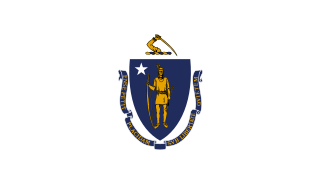The New England Telephone and Telegraph Company was a very early company set up to develop the then-new telephone.

Richard Upjohn was a British-born American architect who emigrated to the United States and became most famous for his Gothic Revival churches. He was partially responsible for launching the movement to such popularity in the United States. Upjohn also did extensive work in and helped to popularize the Italianate style. He was a founder and the first president of the American Institute of Architects. His son, Richard Michell Upjohn, (1828-1903), was also a well-known architect and served as a partner in his continued architectural firm in New York.

Elections to the United States House of Representatives were held in 1878 for Representatives to the 46th United States Congress. These elections occurred in the middle of President Rutherford B. Hayes's term.
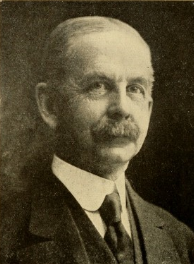
Calvin DeWitt Paige was a U.S. Representative from Massachusetts.

William Whiting was an American businessman and politician from Holyoke, Massachusetts. Whiting descended from an English family who first settled in Lynn, Massachusetts during 1636.
Stephen Palfrey Webb was third and twelfth Mayor of Salem, Massachusetts, serving 1842-1845 and 1860-1863, and the sixth Mayor of San Francisco, California from 1854-1855.
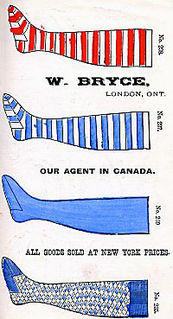
The International Association of Professional Base Ball Players was the name for two separate Canadian-American baseball leagues that operated from 1877 through 1880 and also from 1888 until 1890. Some baseball historians consider the International Association the first minor league; others point out that the league was conceived as a rival to the National League, now thought of as the sole major league of the era.

Walbridge Abner Field was an American lawyer, jurist and politician who served as a member of the United States House of Representatives from Massachusetts, and as the Chief Justice of the Massachusetts Supreme Judicial Court. He was born in North Springfield, Vermont on April 26, 1833. He graduated from Dartmouth College in 1855, where he also served as a tutor. He studied law in Boston, Massachusetts and at the Harvard Law School. Field was admitted to the bar and commenced practice in Boston. He served as a member of the City's school committee, and represented wards 5 and 8 on Boston's Common Council.

Benjamin Dean was a member of the U.S. House of Representatives from Massachusetts.

Henry Francis Naphen was a U.S. Representative from Massachusetts.
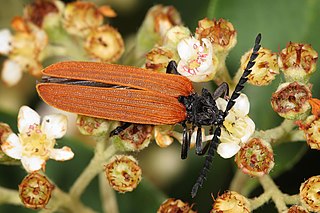
The Lycidae are a family in the beetle order Coleoptera, members of which are commonly called net-winged beetles. These beetles are cosmopolitan, being found in Nearctic, Palearctic, Neotropical, Afrotropical, Oriental, and Australian ecoregions.
The 1879 United States Senate election in New York was held on January 21, 1879, by the New York State Legislature to elect a U.S. Senator to represent the State of New York in the United States Senate.
The United States Senate elections of 1878 and 1879 were elections which had the Democratic Party retake control of the United States Senate for the first time since before the Civil War.
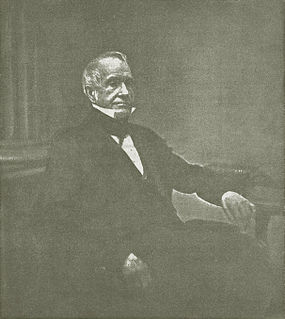
Theron Metcalf was an American attorney and politician from Massachusetts. He was a New England jurist and served as an Associate Justice of the Massachusetts Supreme Judicial Court.
Beethoven Hall (1874-1878) was an auditorium in Boston, Massachusetts, that hosted musical performances and other entertainments in the 1870s. It sat on Washington Street, near Boylston Street, in today's Boston Theater District/Chinatown neighborhood. In 1879 the renovated hall re-opened as the Park Theatre. The building survived until 1990, when it was razed.
The Gaiety Theatre (1878-1882) of Boston, Massachusetts, was located on Washington Street on the block between West and Avery Streets. J. Wentworth oversaw its operations. It occupied the former Melodeon. The Gaiety's 800-seat auditorium featured "walls and ceiling ... panelled in pink, with buff, gold and purple borders; the balcony fronts ... bronze, gray, and pink." In 1882 it became the Bijou Theatre.
This is a list of members of the Victorian Legislative Assembly, from the elections of 11 May 1877. Victoria was a British self-governing colony in Australia at the time.
Elections to Liverpool Town Council were held on Saturday 1 November 1878. One third of the council seats were up for election, the term of office of each councillor being three years.

Charles Sumner Howe was the second president of Case School of Applied Science, now Case Western Reserve University.
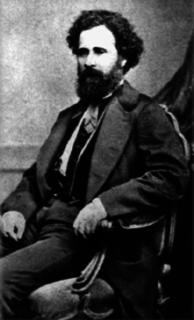
The second cabinet of Ion C. Brătianu ruled Romania from 24 November 1878 to 10 July 1879.
